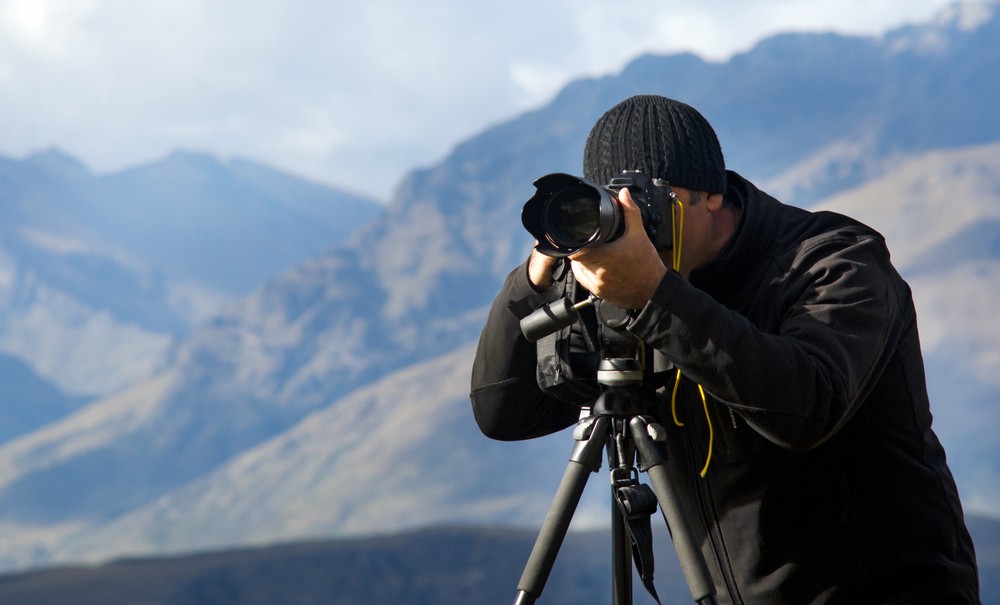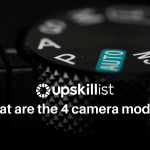
10 Signs You Are Ready To Become A Professional Photographer
Photography as a hobby and photography as a business are two vastly different beasts. As a hobbyist photographer, you can focus only on the aspects you enjoy. As a professional photographer, you’ll also spend a lot of time on the less enjoyable side of things, like marketing and bookkeeping. Still, while professional photography has it’s downsides just like every job, there’s a certain joy in taking pictures for a living.
Think you want to become a professional photographer? Here are ten signs you’re ready to make that leap.
1. You have the technical aspects mastered
Before you ask someone to pay you to take pictures, you should have the technical aspects mastered. Professional photographers should know how to capture an accurate exposure, how to work in difficult lighting, and how to read a histogram, etc. You should know how to use your camera, as well as how to use Photoshop, Lightroom or your favorite pro-level image editor. Photographers often get a good chunk of their business from word-of-mouth referrals. Don’t ruin your business right off the bat by not knowing the technical side. Enrol in a photography class, work as an assistant to a pro, do whatever it takes to gain the know-how before you begin.

2. You’ve defined your own style
Photography can be a business, but it’s also an art. As such, you should define your own style before you set out to earn money from your photographs. It’s impossible for a client to know exactly what they are getting before hiring a professional photographer, but by defining your own style, you can give potential clients a pretty good idea. Do you like to shoot with a photojournalists’ eye? Do you have a knack for contrast? Identifying your style not only helps clients feel comfortable hiring you, it can help you pinpoint your specialty, your audience, and your best marketing methods.
 3. You’ve identified what makes you different
3. You’ve identified what makes you different
Digital cameras have made professional photography a much easier field to get into, which means there are a lot of photographers out there. Does that mean you should hang up the towel before you even get started? Not necessarily. In order to stand out among all the options for pro photographers out there, identify what makes you different, or your niche. This could be specialising in pet photography in an area without a similar business, or it could mean having a unique style among all the senior portrait photographers in your area. If the other photographers in your area offer traditional portraits, opt for something different, like portraits that look more like high fashion images, or portraits with a photojournalistic style.
4. You have an understanding of how a business works
You can be a great photographer and fail horribly as a professional photographer. Why? Working as a professional photographer requires business skills as well as photography skills. While large photography businesses hire help to take care of the business side of things, you’ll most likely be tackling everything yourself when you are starting out. That means wearing more than one hat. You’re the photographer, you’re the marketing pro, you’re the social media expert, you’re the budget manager. If you’re not familiar with the finer points of running a business, pick up a few books on business and marketing business before you get started.
5. You have a solid portfolio
It’s tough to get work without actually having something to show potential clients. But how do you get a portfolio before you’ve started booking professional shoots? Start by offering to take photos (in your target field) for friends and family, for free. Set up a shoot specifically for portfolio images that showcase your style and what makes your work different. Or, work as a second shooter with an established professional. Just be sure to get permission to use the images in your own portfolio from the start.
 6. You’ve built a strategy
6. You’ve built a strategy
Starting a business requires a plan of action. What are your goals? How are you going to set your prices? Who is your target customer, and how are you going to reach them? Before you go into business, sit down and draft a business plan. It doesn’t have be perfect, but it does need to spell out what your goals are, and how you are going to reach them. Don’t just blindly expect to open a business and get the customers magically flowing in.
7. You’re not afraid to market your work
If no one knows about your photography, you won’t get any business. A lot of working as a professional photographer involves business skills, like marketing. As a hobbyist photographer, chatting about how great your photos are feels like bragging, and it probably is. However, as a professional, this equates to marketing. Be prepared to tell potential clients what makes your photographs shine, where your experience comes from, and why they should hire you. Whatever you do, don’t let your business fail simply because no one knows it exists.
8. You’re ready for the paperwork
You can’t just wake up one day and start a photography business. You’ll need to register a business name, or perhaps choose to start an LLC. You’ll need to be prepared to pay your own income taxes. You’ll need to have contracts in place for clients to sign before work begins. As you work on your business strategy, start brainstorming names for your business and find out what your local laws are for starting a business. Jot down a quick checklist of all the paperwork you’ll need, and when it should be completed by.
 9. You have some money saved up
9. You have some money saved up
Starting a business isn’t free. That’s so important, it’s worth repeating: Starting a business isn’t free. You’ll need to have the right gear, and a marketing budget. Depending on what type of photography you do, you may need the funds to rent or buy a studio space. Sit down and write out a budget for getting started including things like marketing, business cards, a website, a studio space, the camera and lenses, lighting equipment and whatever else you may need in your particular field. You could take out a business loan, or you could keep your day job and start saving everything you earn as your photography business takes off to put towards those start-up expenses. Oh, and have a good savings account before you quit that steady paycheck.
10. You understand the negatives and you’re okay with them
Where photography as a hobby can be all joy, there are some downsides to shooting professionally. You’ll have to tackle the less-than-enjoyable aspects, like budgeting and marketing. Many professional photographers find themselves shooting for fun less often, if at all. Think about it, do you go to work for eight hours and then come home to do the same thing you just spent eight hours doing? Don’t become so focused on the idea that you’ll be doing what you love for a living that you’re blindsided by the less desirable aspects, like balancing a budget and working weekends.
Becoming a professional photographer is filled with both joys and challenges. Don’t wreck your photography business before it even gets started by starting too early. Take the time to ensure you have both the photography and business skills to run a successful business. Make sure you have a portfolio, a budget, a strategy and the right paperwork.
Looking to sharpen your photography skills? Join our top-rated professional diploma in photography today!



